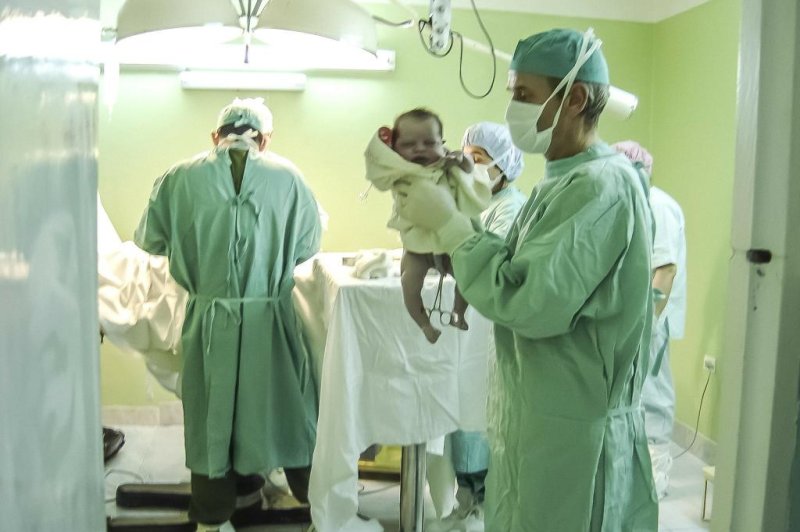A new study reveals how genetic mutations lead to heart defects at birth. Nearly 1 percent of births per year in the United State have congenital heart defects, according to the Centers for Disease Control and Prevention. Photo by
eloisa/Pixabay
June 12 (UPI) -- Researchers have figured out how genetic mutations can lead to heart defects at birth, according to a study.
Researchers at the University of North Carolina have found mutations in the gene CHD4 lead to the development of abnormal heart cells that don't pump blood as efficiently as normal ones.
Heart defects are the most common type of birth defect, affecting nearly 1 percent of births per year in the United States, according to the Centers for Disease Control and Prevention. Those with critical defects -- about 25 percent of babies -- usually need surgery or other procedures in the first year.
"For patients with congenital heart defects linked to CHD4 mutations, this research helps explain why their hearts don't work as well as normal, and suggests strategies for therapeutic intervention," Dr. Frank Conlon, a professor in the departments of biology and genetics at UNC and a member of the university's McAllister Heart Institute, said in a press release.
For the study, published Monday in the Proceedings of the National Academy of Science, the researchers developed embryonic mice that lacked CHD4 in their heart cells. These mice developed severe cardiac defects midway through gestation and died.
The researchers found that the CHD4 protein normally develops heart muscle cells to repress muscle-filament proteins, which are designed to operate in non-heart types of muscle cell. When this repression fails, it leads to the development of abnormal "hybrid" muscle cells that can't pump blood as efficiently as normal heart cells.
This proved that CHD4, which normally is part of a multi-protein "machine" to regulate gene activity within the nuclei of cells, was necessary in heart development.
The researchers measured and analyzed the changes in developing heart-muscle cell gene activity when CHD4 is absent. The CHD4 protein normally binds directly to DNA in a way to repress the activity of genes that encode non-heart muscle proteins.
With CHD4 protein absent, the other non-cardiac muscle proteins are inappropriately produced in developing heart muscle cells. They form abnormal hybrid myofibrils that don't function like a normal heart.
Using an ultrasound technique, Caralynn M. Wilczewski, a graduate student in Conlon's lab, recorded the activity of tiny hearts developing in mice.
"We observed that the hearts lacking CHD4 and having these abnormal cardiac myofibrils had severely reduced ventricular contractions, indicating a loss of the ability to pump blood normally," Wilczewski said.
Aside from explaining the mechanism of CHD4-related cardiac defects, researchers said the normal repression of non-cardiac myofiber proteins could prevent heart defects when CHD4 is mutated.
The next step, researchers said, is to determine how specific human CHD4 mutations lead to cardiac defects in humans -- among others. "This technology has broad applications for testing models of congenital heart disease," Conlon said















